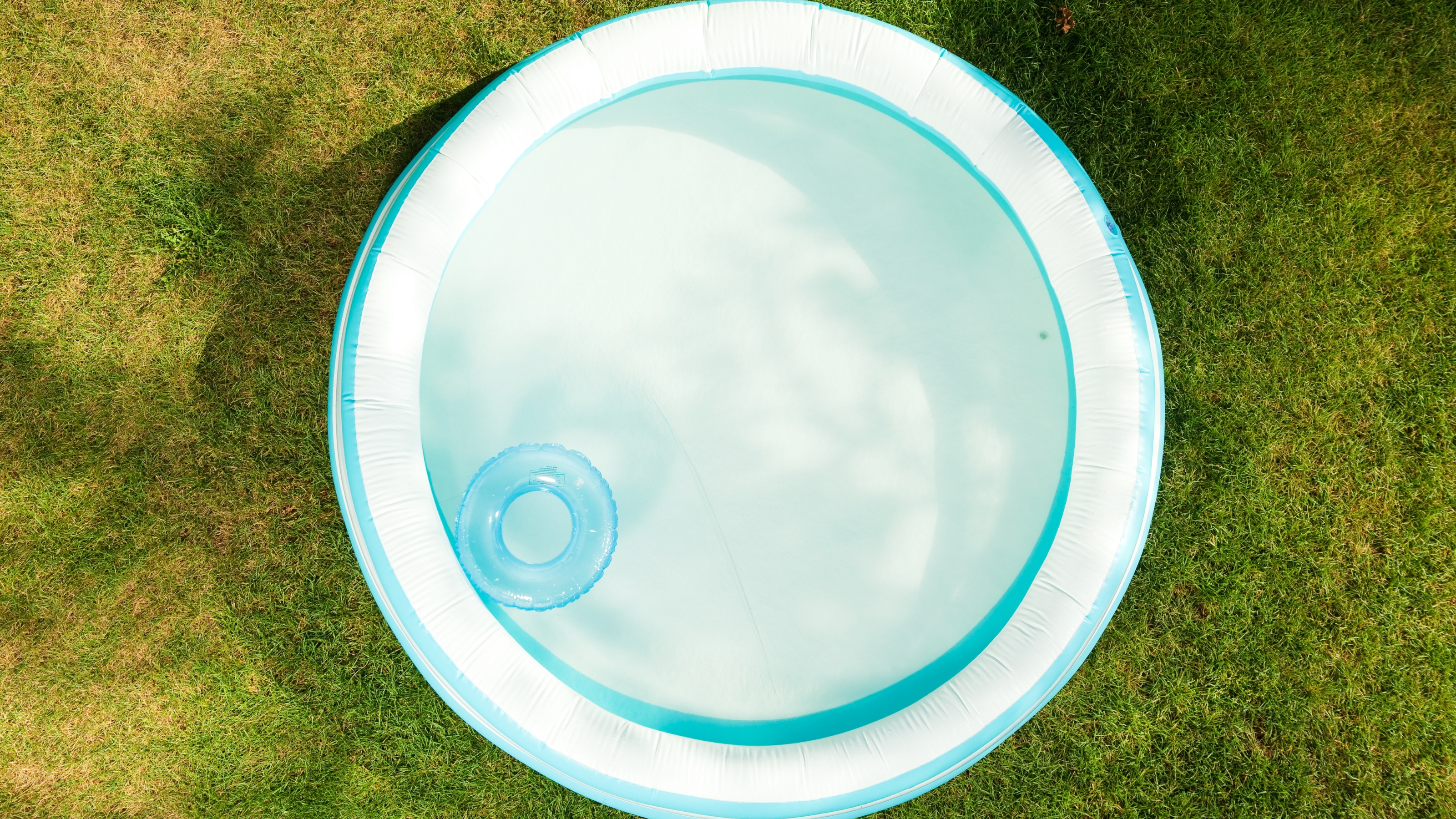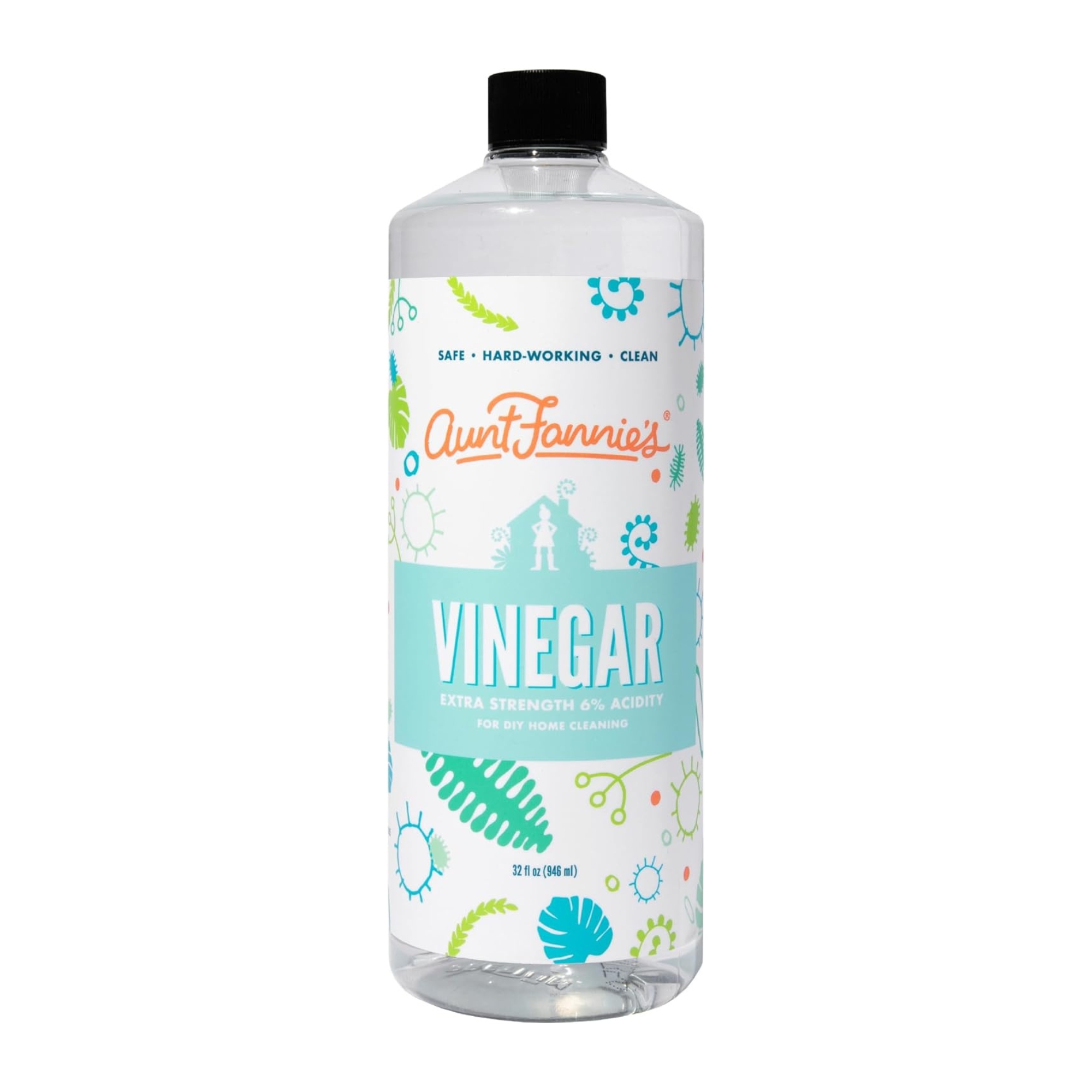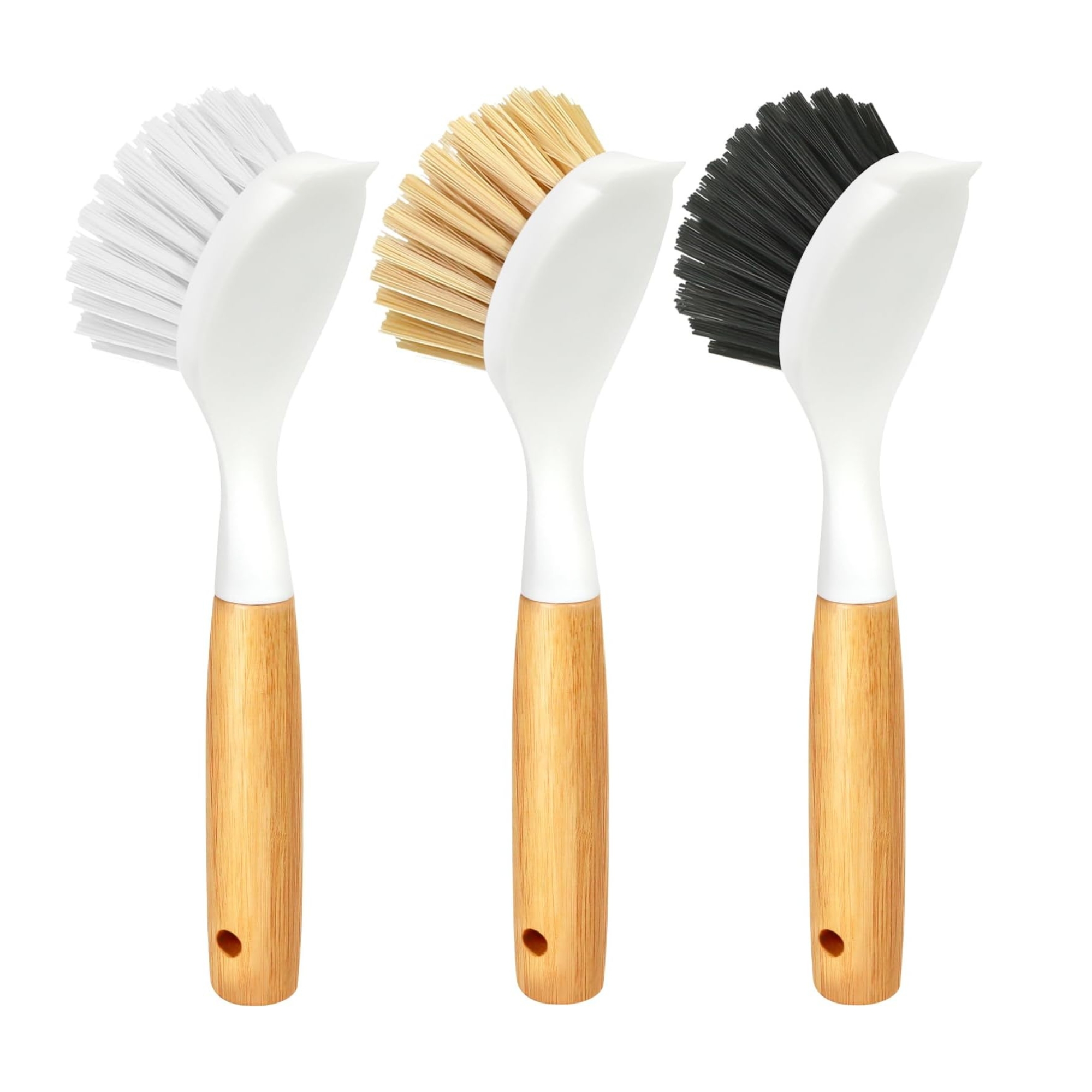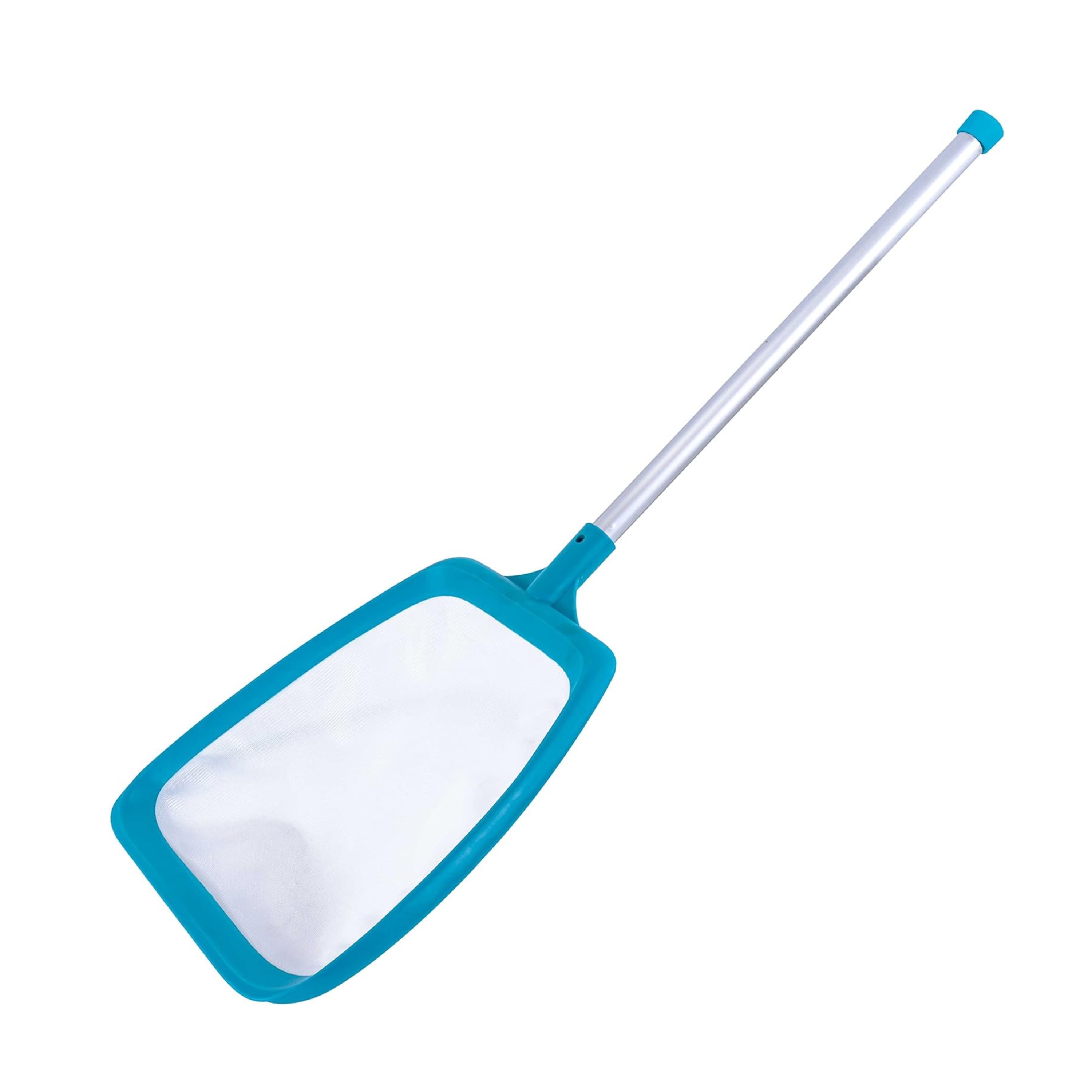How to keep a kiddie pool clean, so you can spend your summer actually enjoying it
Learn how to keep a kiddie pool clean all summer long


Get small space home decor ideas, celeb inspiration, DIY tips and more, straight to your inbox!
You are now subscribed
Your newsletter sign-up was successful
Keep your cooling oasis in good shape and learn how to keep a kiddie pool clean. The first few uses tend to be fine, but after a while dirty feet (and paws) create a pretty gnarly brew that you definitely don't want to be splashing around in.
To combat dirty blow-up pools, we've rounded up some helpful tips and ingredients for getting them sparkling clean again. You won't have to use any strong chemicals either — a few picks you probably already have in your kitchen is all it will take to get yours sparkling again including good old white vinegar.
Haven't bought a blow-up pool yet? Whether or not you have kids, this is the one outdoor furniture buy your summer needs to really feel complete. Don't worry about shopping around, I've picked out four cute options for you below, and then you can learn how to keep it clean.
How to keep a kiddie pool clean
Cleaning a paddling pool doesn't have to be a total headache. There are plenty of simple ways to keep the water in your best paddling pool clear and clean. We're going to touch on some easy cleaning methods and preventative measures you can take so it doesn't get super gross.
"Clean the pool weekly to prevent the buildup of dirt and algae. Algae can grow rapidly in standing water, and regular maintenance helps prevent its accumulation, which can cause slippery surfaces and make the pool unsafe," says Karina Toner, Operations Manager of Spekless Cleaning.
Kiddie pool cleaning essentials
First things first, you're going to need some cleaning supplies to clean your kiddie pool. Take a look at our top picks for getting the job done.
You can add these Amazon items below to your digital basket and tick the date during checkout that says: "few boxes, fewer trips" for a smaller carbon footprint.
Get small space home decor ideas, celeb inspiration, DIY tips and more, straight to your inbox!
Prices were correct at the time of publishing.
- Inflatable pool cover
- A king-sized bedsheet
- Weed control membrane
- A pool skimmer
- A garden hose
- Baking soda or borax powder
- Pool salt
- White vinegar
- pH test strips
- pH reducer (dry acid)
Step 1: Remove debris and drain
Scum happens. When debris, bacteria, and dirt start building up you might have a friendly layer of junk accumulating. Although you're probably used to seeing giant pool skimmers for in-ground pools, this PoolWhale pool skimmer from Amazon works just as well for your mini version as does this Mowend Swimming Pool Skimmer. Both are loved by customers with thousands of reviews.
It has five sections so you can make the pole as long or short as you need. If you have other water features nearby or even a pond, this doubles as a net for that, too.
"Remove any large debris with a net. You can use a submersible pump or a simple siphon method to drain the water. Once drained, remove any remaining debris or toys from the pool," says Karina.
Step 2: Rinse the pool
Once all the water is drained, you're going to need to clean the pool itself. This will blast away any debris still attached after skimming the pool. "Rinse the pool with a garden hose to remove loose dirt and grime," says Karina.
Step 3: Clean with soap and vinegar
The Center for Disease Control and Prevention (CDC) warns against using conventional pool cleaners to keep a kiddie pool clean. It can irritate eyes and skin, which sucks for you and your friends (and any pets or kids who use it).
For something a little gentler, try cleaning with vinegar. You don't need too much to make a difference — around a 1/4 to 1/2 cup is great. Our fave at Real Homes is Heinz's white vinegar, which is also on Amazon. It's a classic product that workd for just about anything.
"For a natural cleaner, use a vinegar and water solution (1:1 ratio). This is especially good for removing hard water stains and mineral deposits, making it easier to scrub away stains without harsh chemicals," says Karina.
If you've got stubborn stains on your PVC paddling pool, empty it out and grab your dish soap and sponge. Need a restock? We like using Mrs. Meyers Clean Day Liquid Dish Soap, available on Amazon, since it's biodegradable and smells great.
"Fill a bucket with warm water and add a mild dish soap. Use a soft brush or sponge to scrub the entire surface of the pool, including the sides and bottom," says Karina.
Step 4: Tend to algae with baking soda
Your cleaning arsenal probably doesn't include a whole lot of pool supplies, but you actually don't need them. Cleaning with baking soda is a good (and cheap) alternative to using specialist, bleach-heavy products to wipe out algae.
Algae isn't dangerous, but no one wants to rub up against that slimy texture or leave it long enough to allow bacteria to grow. You can't go wrong with Arm & Hammer baking soda, available from Amazon. The classic brand has a 4.8-star rating with over 1,600 reviews from fans.
Step 5: Rinse
Once you're done scrubbing the pool make sure to thoroughly rinse with a garden hose. Make sure all traces of soap and other cleaning products are removed and the water runs clear before filling it back up again.
"Allow the pool to air dry completely before refilling or storing it. This helps prevent mold and mildew growth," says Karina.

Price: $12.99
Clean your kiddie pool with this extra-stength white vinegar to combat all kinds of dirt and grime. It's a great non-toxic alternative to bleach and other harsh cleaning products. Allow the area you've cleaned to completely dry before you fill with water. The vinegar's odor will evaporate as it dries.

Price: $7.95
Use these scrub brushes to remove dirt from all the nooks and crannies in your kiddie pool. This handy set comes in a pack of three so you can stock up for other tasks around the house, too.

Price: $13.99
A simple pool skimmer net can be used to scoop out leaves, sticks, and other debris that may end up in the pool. This net is well-loved by customers with a 4.5-star rating and over 9,000 reviews.
How to prevent dirt
There are a few ways you can stop dirt in it's tracks so your kiddie pool stays cleaner for longer. Check out some easy ways you can avoid dirt in the future.
Get a pool cover
Unless they're paying to use your pool, you probably want to keep bugs and any debris really out of your pool. There are plenty of pool covers out there, like the Intex one on Amazon, loved by over 20k reviewers. Just pick based on the dimensions of your pool and if it's round or rectangular.
"Use a pool cover when the pool is not in use to keep out debris and protect it from the sun’s UV rays. A pool cover keeps leaves, insects, and other debris out of the pool, reducing the amount of cleaning required. Additionally, UV rays from the sun can break down the pool's material over time, leading faster to wear and tear," says Karina.
DIY your own pool cover
If you're not about to drop some cash on a pool cover, you can also rely on this hack for keeping bugs and grime out of your inflatable pool. All you need? A fitted sheet.
This works best for rectangular pools and you'll want to compare the sheet's dimensions to those of your pool. Amazon's Utopia fitted sheet is a good pick since it's pretty budget-friendly.
Alternatively, black plastic sheeting (like the stuff people get to control weeds in their gardens) will keep the pool clean AND is said to keep the water as warm as possible, too. We like this weed control membrane from Amazon as it's made with UV-stabilised 100gsm material.
Get a dip tray or tub going
Cleaning up before you dip a toe is one of the best preventative measures for keeping an inflatable pool clean. A tray (like this foot bath available on Amazon, which you can fit directly to a pool ladder) or a foot tub such as this collapsible foot basin from Amazon (great for easy storage) filled with water can make an enormous difference.
Dip your feet or your pup's paws in prior to jumping in the pool and your future self will thank you. Once you're done, dump the water in some of those balcony plants that need it to avoid water waste and store the tray away. Easy!
Choose a paddling pool with a filter
If you haven't bought one yet, investing in a paddling pool with a filter pump is well worthwhile. It can remove dirt and debris and improve water circulation. We like the Intex 10ft x 30in Easy Set Pool on Amazon, which comes with a filter pump to keep the water cleaner.
FAQs
How do you clean an inflatable pool without draining it?
It's doable! Expert Davy Merino of the blog InTheSwim Pool says to use chlorine tablets to keep things clean without having to dump all the water out.
"Most inflatable pools need just half of one three-inch tablet per week, or several one-inch tabs at a time, replaced promptly when they dissolve," he says. "That said, your test kit will tell you for sure."
You'll want to test levels a couple of times each week, and you can buy these tabs on Amazon — Clearwater's CH0019 1 kg Multifunction Chlorine Tablets have a 4.6-star rating.
Can you put Epsom or regular salt in an inflatable pool?
Short answer: no. Michael Dean, swimming pool expert and author on Pool Research advises that you specifically shop for pool salt. With 25 years in the industry, he explains that pool salt isn't the same as what you use while cooking.
"People use Himalayan salt, Epsom salts, Kosher salts, and other salts in their food, but these often have additives or minerals that give them their distinctive flavors and properties that are bad for pools," he explains.
"The best pool salts are as close to pure sodium chloride as possible. It’s prohibitively expensive to get 100% pure salt because there will always be trace minerals and impurities, but up to 99% pure is both easy and affordable."
While you clean your pool, it's always important to keep safety in mind.
"Always use gloves when handling cleaning solutions, and ensure the pool is thoroughly rinsed to remove any chemical residue. Many cleaning agents can cause allergic reactions or skin sensitivities. Using gloves minimizes direct contact, protecting your skin from potential harm and thorough rinsing ensures no harmful residues remain, making the pool safe for kids and pets to use," says Karina.
Once your pool is in order, you can plunge straight into summer with these backyard buys, making the perfect outdoor oasis.

Hi, I'm former editor of Real Homes. I cut my teeth in New York City, covering fashion and beauty but eventually made my way into the world of homes. I've spent several years writing and editing for The Spruce, Apartment Therapy, Forbes, MyDomaine, People, InStyle, Real Simple, Lonny and more. I track trends like it's a competitive sport but am equally excited about covering products and style ideas that stand the test of time.
- Christina ChrysostomouFormer acting head ecommerce editor
- Sarah WarwickFreelance Editor